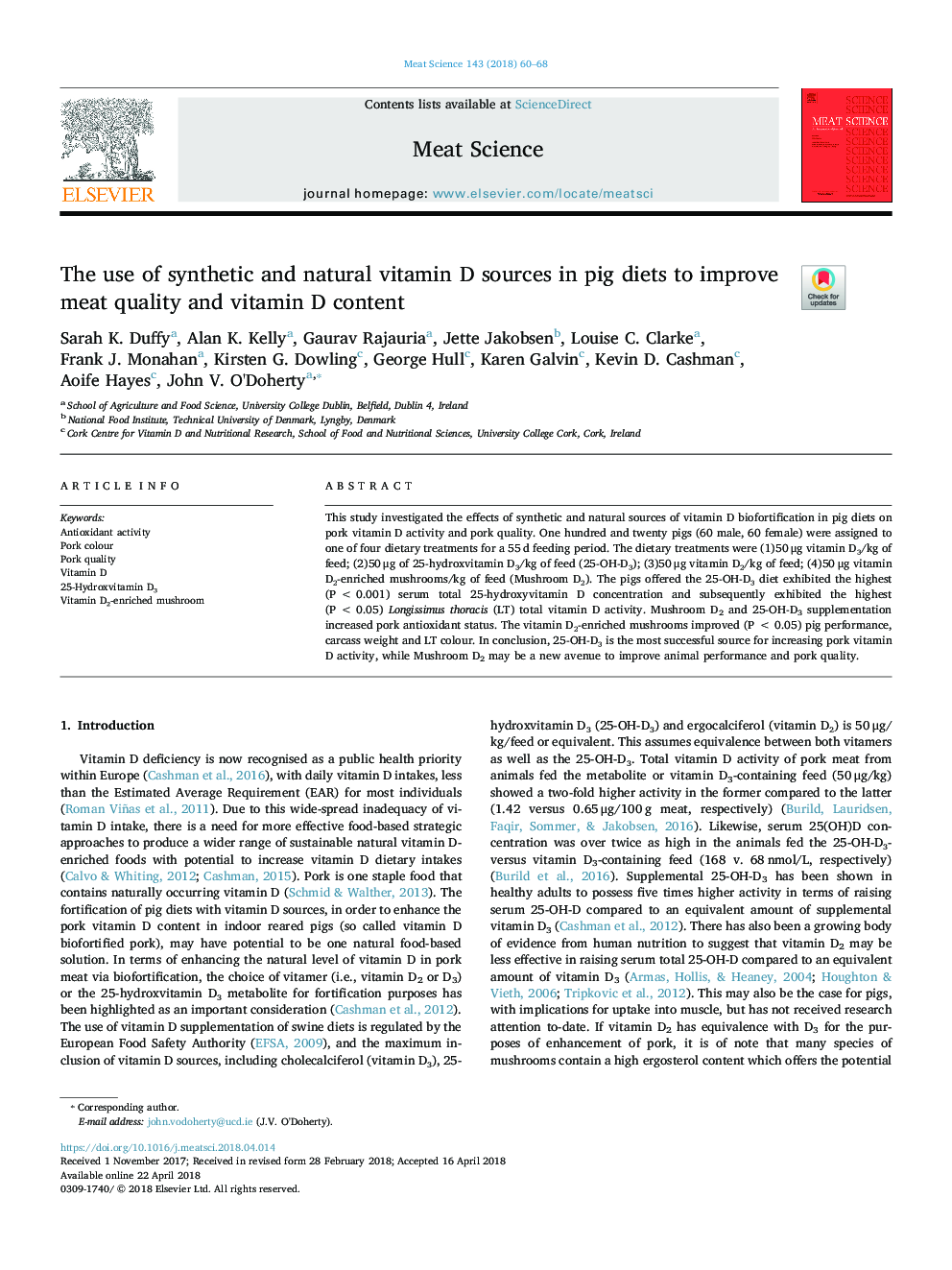| Article ID | Journal | Published Year | Pages | File Type |
|---|---|---|---|---|
| 8502626 | Meat Science | 2018 | 9 Pages |
Abstract
This study investigated the effects of synthetic and natural sources of vitamin D biofortification in pig diets on pork vitamin D activity and pork quality. One hundred and twenty pigs (60 male, 60 female) were assigned to one of four dietary treatments for a 55â¯d feeding period. The dietary treatments were (1)50â¯Î¼g vitamin Dâ/kg of feed; (2)50â¯Î¼g of 25-hydroxvitamin Dâ/kg of feed (25-OH-Dâ); (3)50â¯Î¼g vitamin Dâ/kg of feed; (4)50â¯Î¼g vitamin Dâ-enriched mushrooms/kg of feed (Mushroom Dâ). The pigs offered the 25-OH-Dâ diet exhibited the highest (Pâ¯<â¯0.001) serum total 25-hydroxyvitamin D concentration and subsequently exhibited the highest (Pâ¯<â¯0.05) Longissimus thoracis (LT) total vitamin D activity. Mushroom D2 and 25-OH-D3 supplementation increased pork antioxidant status. The vitamin Dâ-enriched mushrooms improved (Pâ¯<â¯0.05) pig performance, carcass weight and LT colour. In conclusion, 25-OH-Dâ is the most successful source for increasing pork vitamin D activity, while Mushroom D2 may be a new avenue to improve animal performance and pork quality.
Related Topics
Life Sciences
Agricultural and Biological Sciences
Food Science
Authors
Sarah K. Duffy, Alan K. Kelly, Gaurav Rajauria, Jette Jakobsen, Louise C. Clarke, Frank J. Monahan, Kirsten G. Dowling, George Hull, Karen Galvin, Kevin D. Cashman, Aoife Hayes, John V. O'Doherty,
